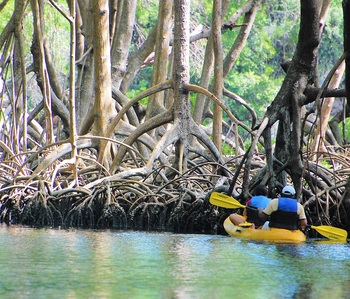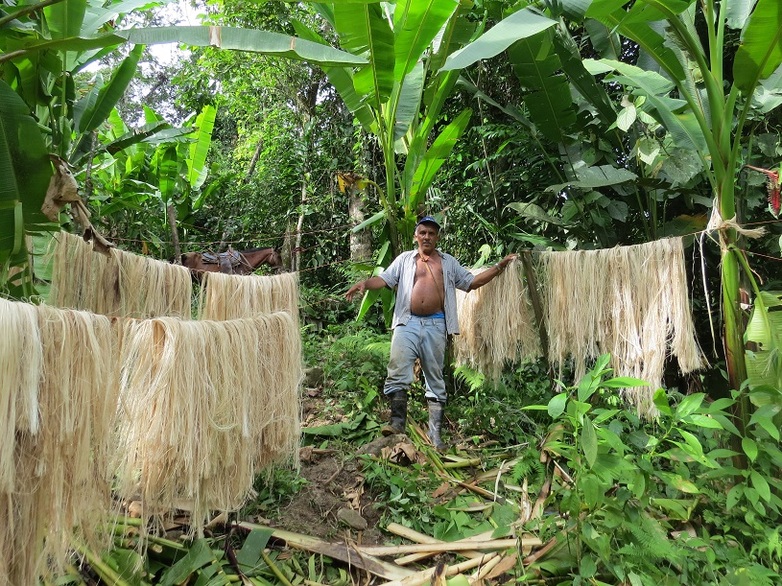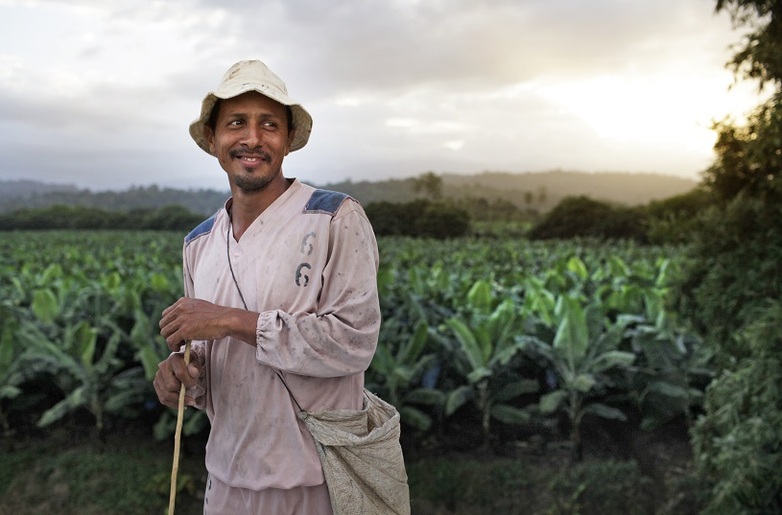Protecting and sustainably managing dry forests
Project description
Title: Strengthening capacities for sustainable land use in the Mesoamerican Biological Corridor
Commissioned by: Federal Ministry for Economic Cooperation and Development (BMZ)
Country: Mexico, Costa Rica, Guatemala, Germany
LEad executing agency: Mexico: Mexican Agency for International Development Cooperation (AMEXCID), National Commission for the Knowledge and Use of Biodiversity (CONABIO), Guatemala: Ministry of Environment and Natural Resources (MARN), Costa Rica: National System of Conservation Areas (SINAC)
Overall term: 2016 to 2018

Context
Guatemala has around 4,000 square kilometres of dry forests, which account for approximately 3.5 per cent of the national territory. These form part of the Mesoamerican Biological Corridor, which is characterised by significant biodiversity. Despite protection efforts, Guatemala’s dry forests are among the most threatened tropical ecosystems and have so far lost over 75 per cent of their original area. This is due to deforestation, the conversion of forests into farmland, and rising levels of environmental pollution.
Owing to the remoteness of the dry forests, they are home to many endemic species of flora and fauna. These areas are particularly affected by degradation, such as by decreasing soil quality as a result of eluviation. The ecosystem is also especially susceptible to the effects of climate change.
Protection and management measures for strengthening resilience against climate change have therefore been necessary to ensure the survival of the forests and secure people’s livelihoods.
Objective
Institutions, development actors and local organisations from Guatemala that support sustainable land use in the Mesoamerican Biological Corridor apply knowledge from partners from Costa Rica and Mexico for sustainable management and protection measures.

Approach
As part of a triangular cooperation arrangement, Mexico, Costa Rica, Guatemala and Germany are working as equals to protect dry forests in Guatemala. In particular, the project supports international knowledge exchange between organisations from Mexico and Costa Rica and organisations from Guatemala. GIZ’s priority areas in the triangular cooperation are efficient coordination, implementation, evaluation and systematisation of the project.
GIZ and its partners advise development actors, state institutions and local organisations in Guatemala that operate in the Mesoamerican Biological Corridor. For example, the Ministry of Environment and Natural Resources (MARN) and the Guatemalan National Institute for Seismology, Vulcanology, Meteorology and Hydrology (INSIVUMEH), as well as universities and non-governmental organisations.
Advisory topics include the development of knowledge and expertise, such as tools to promote dialogue and participation, gender-appropriate methods and new partnerships between urban and rural areas (known as territorial governance).
Territorial governance requires up-to-date and accurate data to make decisions on the planning of protection measures and the conservation of natural resources. The project therefore supports the National Commission for the Knowledge and Use of Biodiversity (CONABIO) in making this information available to the various state institutions and civil society through a geoportal on the internet.
Among other things, the Geoportal comprises information and maps on the geography of Guatemala’s protected areas.
In addition, the project provides advice to the organisations involved on processing, supplying and using information on sustainable land use. For example, technical data sheets, strategic directives and a ministerial agreement on the institutional establishment of the Mesoamerican Biological Corridor have been drawn up. The project also supports the development of guidelines on strengthening the biological corridors in Guatemala, which are based on the sharing of experience with Costa Rica.

Result
The institutions responsible for monitoring the Mesoamerican Biological Corridor in Guatemala (MARN and the CALMECAC foundation) apply tools and methods for sustainable land use in the dry forest area of Ostúa.
Together with strategic partners such as universities, project partners use information systems for decision-making, including the advanced Geoportal. Representatives from Guatemala’s national institutions, non-governmental organisations and a university have been trained in the use of the Geoportal.
Communities in the dry forests of Ostúa and Jutiapa manage the area using sustainable measures. These include, for example, sustainable firewood management, reduced deforestation of the dry forest and technologies for reducing the use of firewood. This is designed to mitigate damage to the dry forest, ensure sustainable forest and water management, and safeguard the area’s biodiversity. An average of 45 people from the public sector, the production sector and local authorities have attended workshops on these issues.